Top 10 Biggest Gig Economy Companies In The World
By Adrian Mole Updated: Feb 08, 2024

Revolutionizing work with the hottest freelance gig platforms.
The top 10 largest gig economy companies create an ever-evolving job landscape that projects a transformative force upon the traditional workplace.
This economic paradigm shift is redefining how most businesses operate and irrevocably changing how individuals seek employment.
Gig economy platforms have revolutionized employment models by connecting freelancers and businesses across industries, providing flexibility and opportunities for both employers and independent workers.
Top 10 Biggest Gig Economy Companies In 2024
These services allow skilled individuals to offer their expertise independently while enabling companies to access talent on demand.
We’ve ranked these gig economy companies based on their growth potential and ability to provide employment opportunities for gig workers in 2024 and beyond.
To help you in your search for the best opportunities, here's our list of the 10 biggest gig economy companies of 2024:
10. Lyft
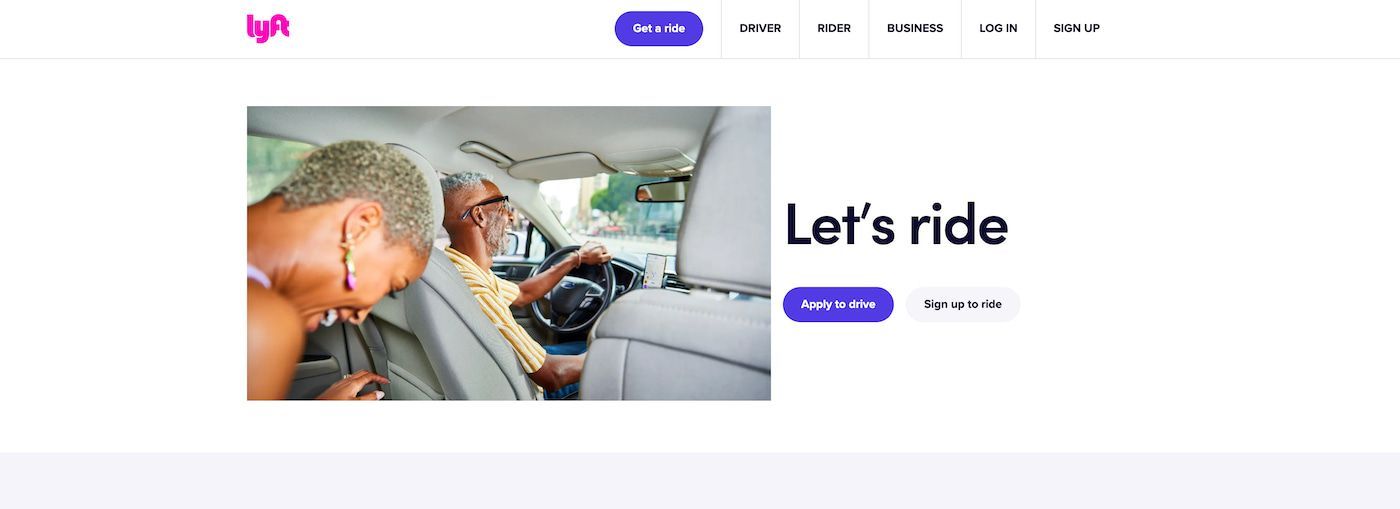
Lyft, founded in 2012 by Logan Green and John Zimmer, is a ride-hailing service like Uber that offers individuals the opportunity to become drivers.
This gig economy company's aim is to supply convenient transportation options at more competitive rates than conventional taxis while giving drivers flexible earning opportunities.
The company's app connects riders with drivers for on-demand rides, offering clients an alternative to other online applications that provide similar services.
Not only does Lyft assist drivers with marketing services, they also help with how to file taxes and offer accounting tips to maximize driver earnings.
Lyft faces similar issues to Uber, including low gig workers’ wages, regulatory hurdles, and safety concerns, especially in developing countries that are less law-abiding.
The rising demand for transportation services will give drivers access to the best gig economy jobs, helping to secure Lyft’s future success.
Lyft continues to provide various driver support systems to help them better serve their clients, including assistance centers and resources.
Expanding their services beyond basic ride-hailing has enabled Lyft to meet different transportation needs by offering options like Lyft Lux and Lyft XL.
With rising usage, constant app and service enhancements create opportunities for drivers to adapt and increase their earning potential.
9. Rover
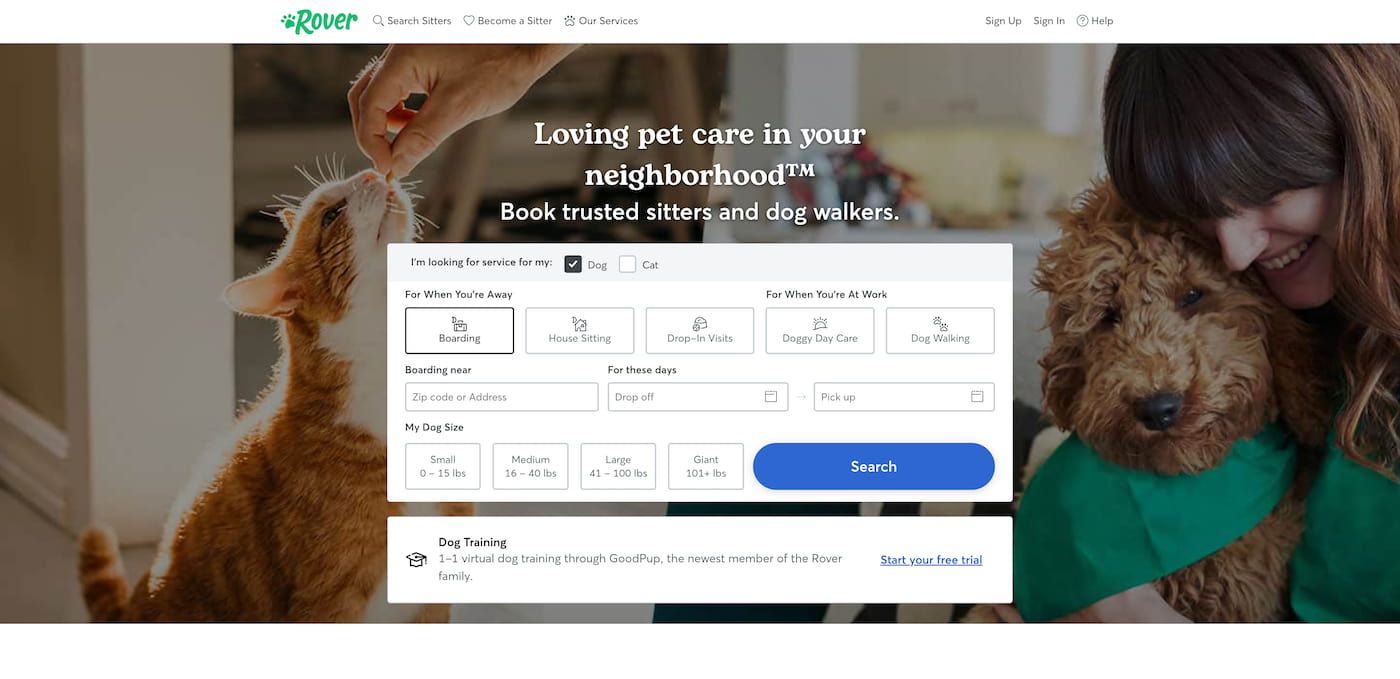
Greg Gottesman, Aaron Easterly, and Philip Kimmey founded Rover in 2011 with the intention of connecting pet owners with pet sitters and dog walkers.
They saw a gap in the gig economy market where they could provide pet care services and opportunities for animal lovers to earn income by caring for pets.
Rover's gig economy platform allows pet owners to find trusted, vetted sitters and walkers for their pets through the use of an online marketplace.
The company experienced challenges such as ensuring the safety of pets, liability concerns, and maintaining quality standards for pet care services across diverse geographic locations.
A gig worker can make use of the app’s marketing opportunities to expand their business through the smart use of technology.
Market research indicates that the value of the e-commerce pet care market is expected to exceed $87 billion globally by the year 2027.
With e-commerce sales accounting for one-third of global pet care sales by 2026, the demand for pet sitters and dog walkers is expected to rise.
Rover’s platform is trusted by its customer base thanks to a vetting process and review system that creates a sense of trust between sitters and animal owners.
Building rapport with pet owners can lead to recurrent bookings and positive recommendations for gig workers while positively impacting Rover’s growth.
8. Postmates
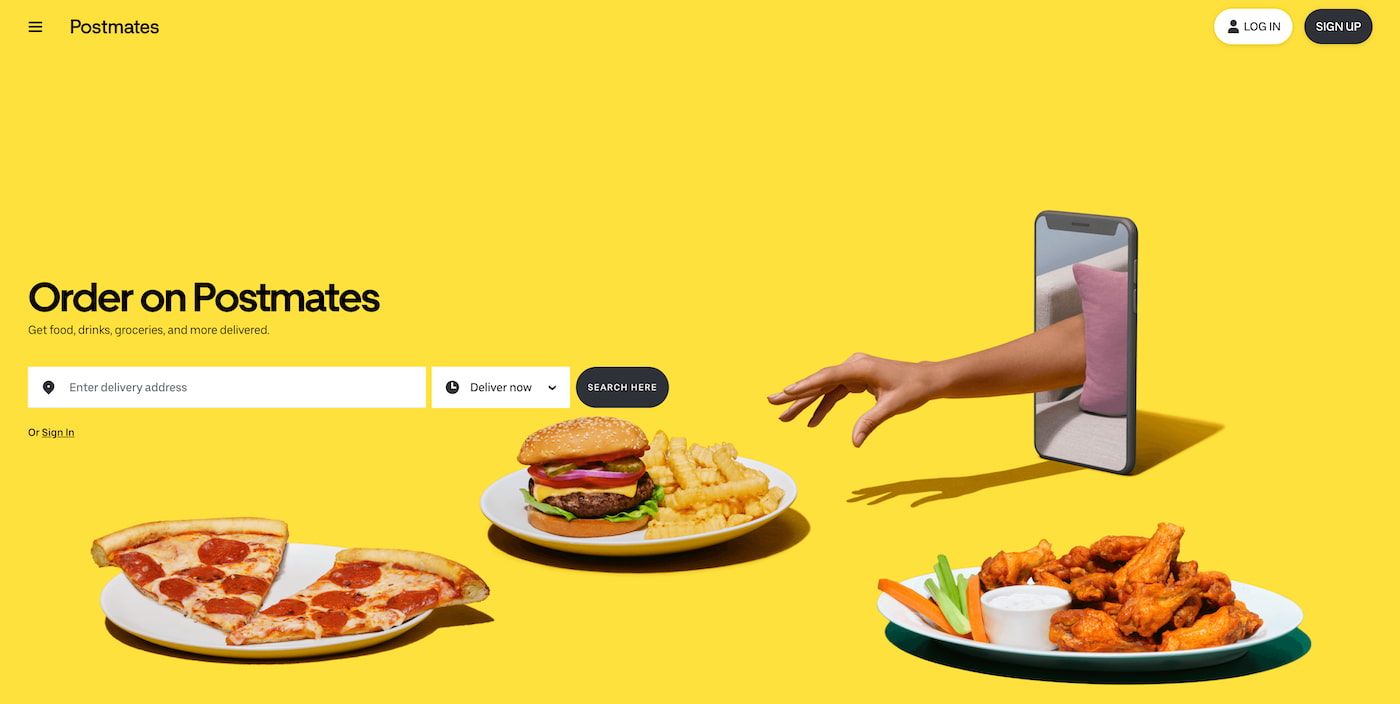
Postmates appeared in 2011 when it was launched by Bastian Lehmann, Sam Street, and Sean Plaice to provide a new online grocery delivery service.
The company supports restaurant meals, groceries, and other goods supplied through an on-demand delivery service powered by gig workers.
Postmates offers a flexible gig economy employment option for couriers, allowing users to order various items for delivery by a dedicated network of independent contractors.
Like many gig economy platforms, Postmates faces scrutiny regarding worker classification and compensation due to the level of control they exercise over delivery drivers.
However, gig workers’ earning potential is based on completed deliveries, so the potential to increase income with more orders is within their control.
The market is very competitive, so new players and existing retailers are constantly innovating to stay ahead of the game.
7. Instacart
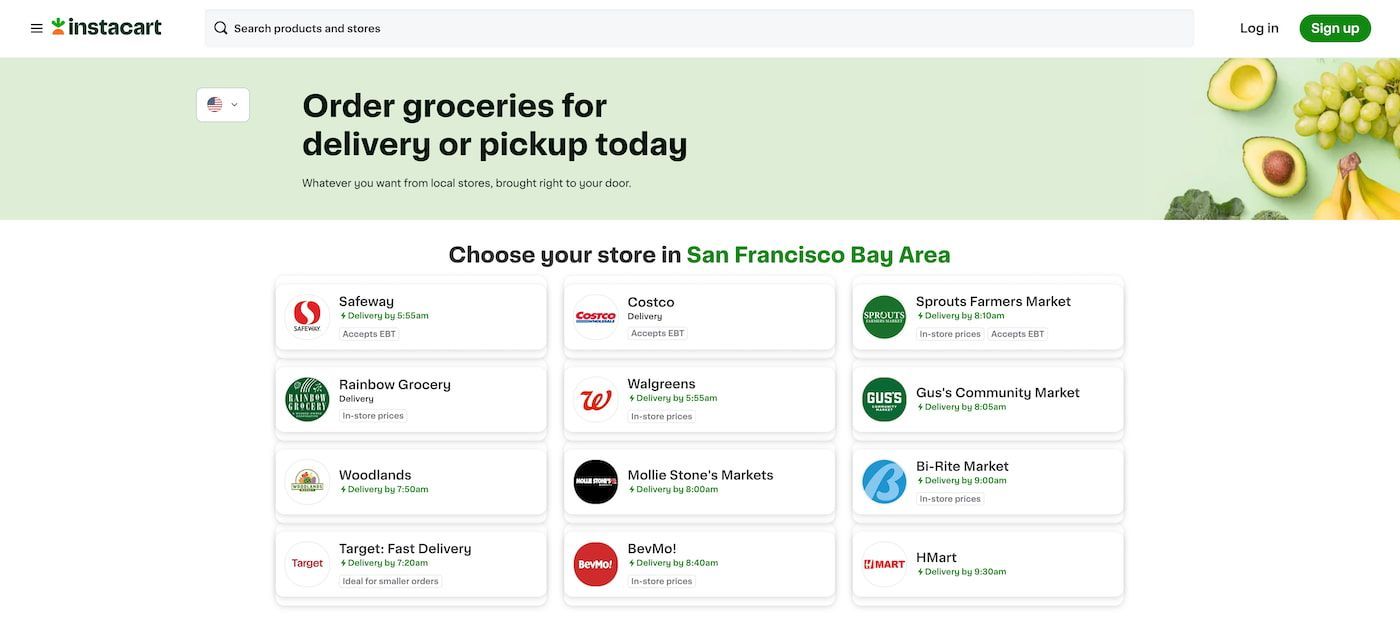
Apoorva Mehta founded Instacart in 2012, providing a grocery delivery service that allows users to order products online and have them delivered by independent contractors.
He saw an opportunity to offer convenient grocery shopping and delivery options while creating job opportunities for shoppers who need an income.
Users can order groceries through Instacart's online platform, and shoppers then go out to fulfill and deliver orders to the specified addresses.
Like many other gig economy companies, Instacart faces criticism over labor practices, worker wages, and tipping policies despite the success of its app.
U.S. households increased their online purchases to over $800 billion in 2020, and this figure is steadily rising each year as the gig economy matures.
Clients also benefit from greater flexibility by shopping when their schedules allow rather than adhering to brick-and-mortar business hours.
Shoppers now have more opportunities to interact directly with their customers, providing time for positive feedback and larger tips.
6. Gigster
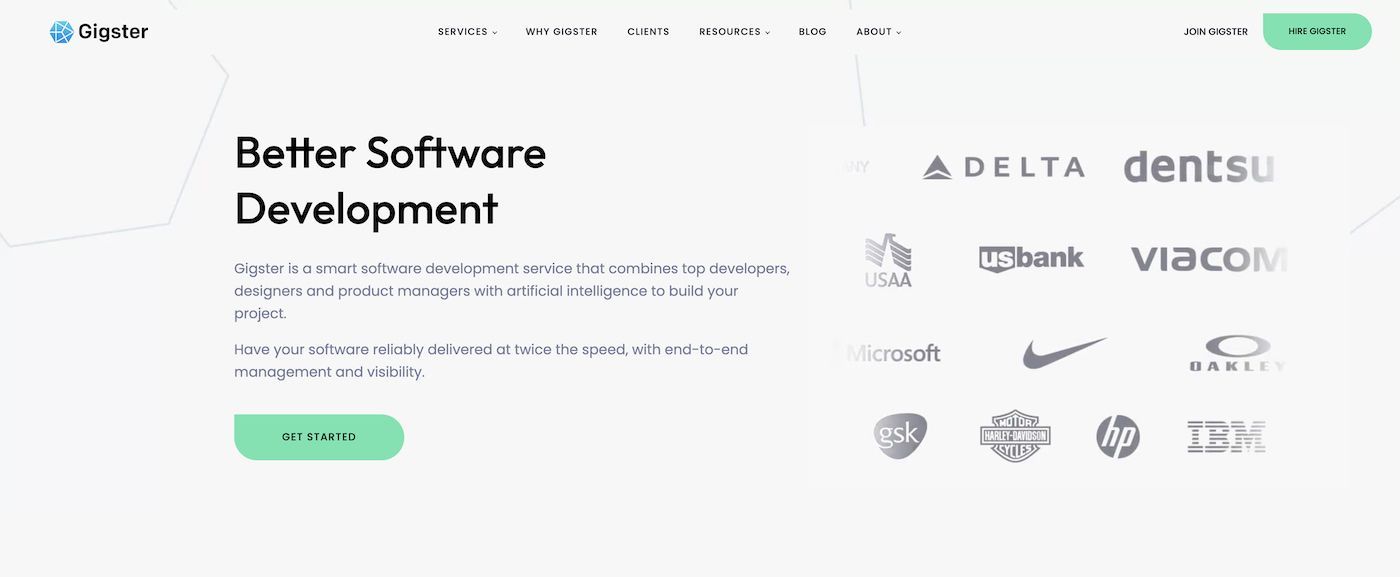
Gigster started in 2013 when Roger Dickey and Debo Olaosebikan launched an app catering to the tech industry.
It connects businesses with freelance software developers, designers, and project managers, providing on-demand access to tech talent for software development and digital projects.
Gigster's success lies in the platform's ability to match clients with pre-approved and vetted freelancers with the skills required for tech-related projects.
The ability to meet clients’ multi-faceted needs is a cornerstone of the best gig economy stocks and is an area where Gigster excels.
However, the company initially experienced many challenges, such as maintaining quality control, managing client expectations, and ensuring fair compensation for freelancers.
Independent contractors and freelancers can apply their specialized skills in software development, design, and project management without the need to market themselves.
This, together with a wide range of tech-related projects, provides opportunities to build experience while developing skills in the gig economy.
Networking possibilities for gig workers should not be overlooked; diverse projects can introduce freelancers to potential long-term clients and networks.
5. DoorDash
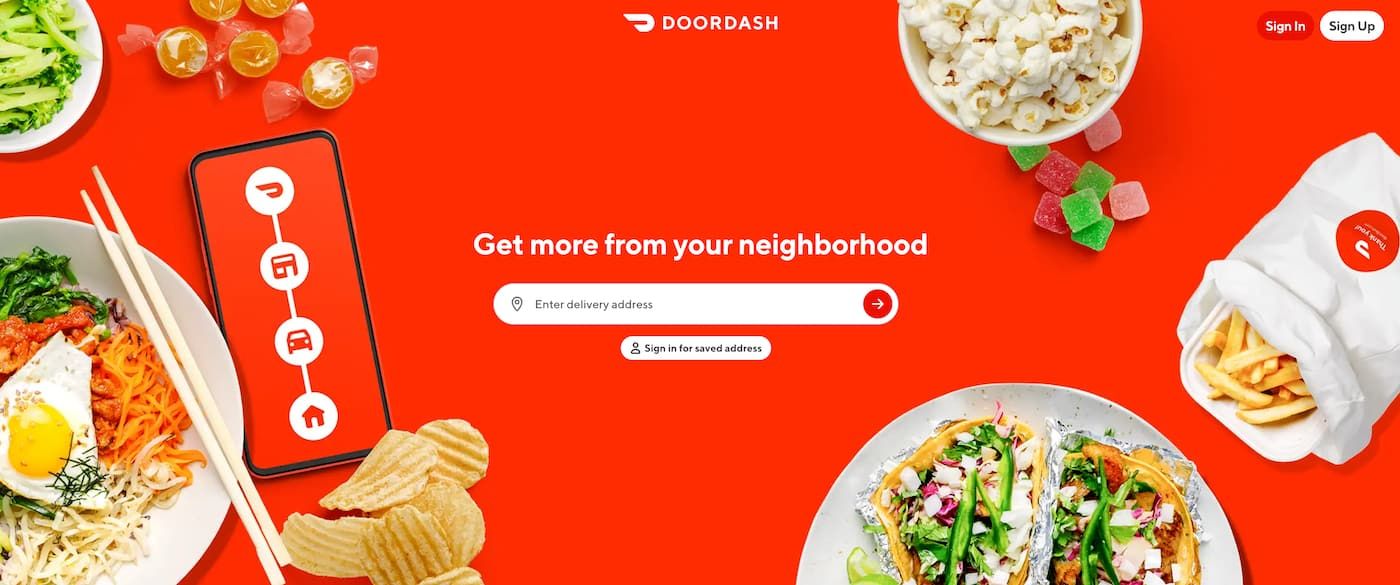
DoorDash arrived in 2013 after Tony Xu saw a gap for a specialized food service delivering meals from restaurants to consumers' doorsteps.
He strove to create an efficient and cost-effective food delivery solution while providing flexible earning opportunities for delivery drivers.
DoorDash's app allows users to order and pay for food from partner restaurants, and after the meals have been prepared, "Dashers" deliver them to customers.
It hasn’t all been plain sailing; DoorDash faced criticism regarding worker compensation, delivery fees, and relationships with partnered restaurants.
One of the gig economy trends that the recent pandemic boosted was the demand for food delivery services, leading to increasing demand for Dashers.
Deliveries usually occur within specific zones, allowing Dashers to work in familiar areas while potentially increasing their income with more orders.
DoorDash’s app provides various tools and data that help Dashers optimize delivery routes, increasing efficiency and earnings.
4. Fiverr
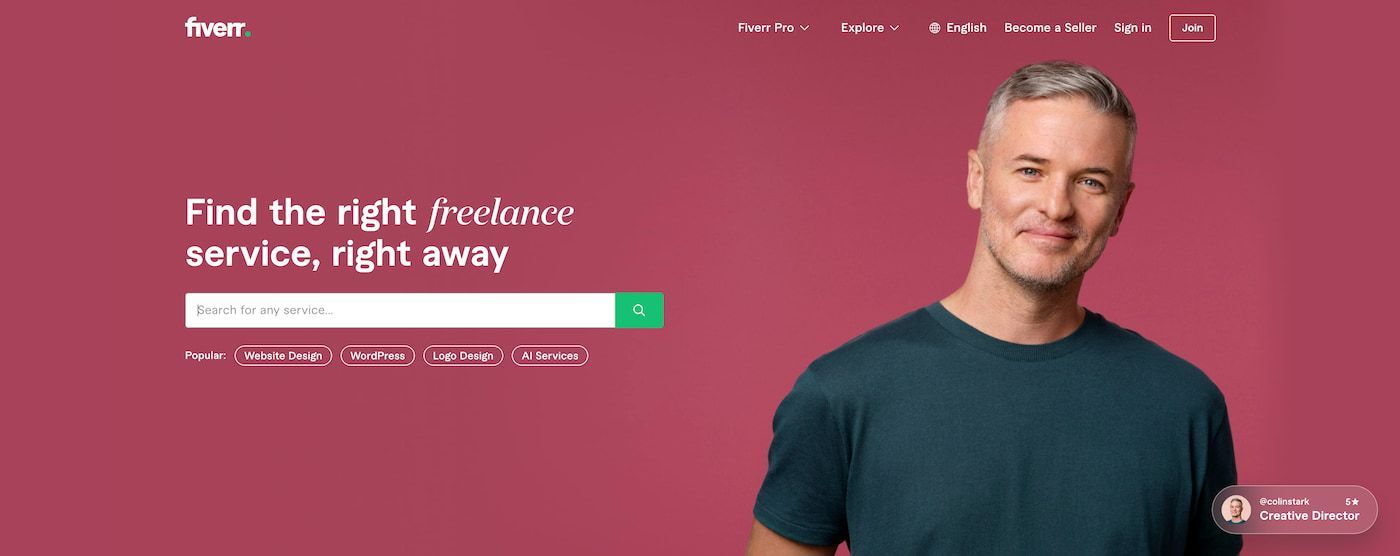
Fiverr was launched in 2010 by Micha Kaufman and Shai Wininger, providing a platform for freelancers who offer digital services in assorted fields.
The platform also provides a comprehensive tax prep checklist and accounting help for freelancers, offering digital services across various categories.
It's one of the original top gig economy companies that have popularized the idea of earning money through freelance gigs.
Fiverr aims to let members sell their skills and creative services to clients globally for $5 per gig while offering various alternative pricing options.
The platform covers a host of services, from graphic design and writing to programming and digital marketing, with each service provider receiving a quality rating.
Due to a competitive marketplace tilted in favor of more established accounts, new freelancers on the platform often find it difficult to stand out.
There have also been problems with payment and quality issues due to the free-for-all nature of the service providers and their level of skill.
Fiverr’s worldwide reach offers freelancers exposure to a vast client base across different industries and markets, reducing the impact of regional job fluctuations.
With customized pricing, Fiverr allows freelancers to set their rates, providing greater flexibility in their earning potential while giving clients more choices.
Based on customer feedback, freelancers can build strong reputations and attract more customers while also refining their skills.
3. TaskRabbit
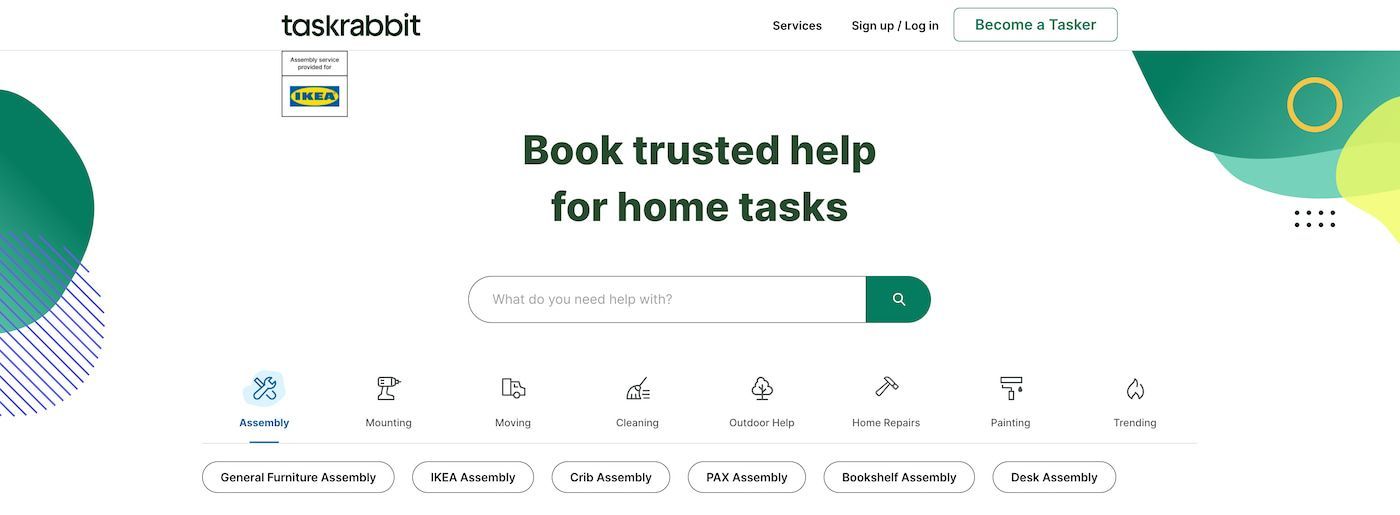
TaskRabbit was started in 2008 by Leah Busque and offers a platform that outsources gigs to freelancers and independent contractors in various categories.
The primary goal is to connect people who need to complete errands and tasks with individuals willing to perform them at competitive rates.
Platform users can hire "Taskers" when they need professional services like furniture assembly, cleaning, moving assistance, marketing, writing, or virtual assistance.
While the platform runs well, TaskRabbit faces a variety of concerns related to the classification of workers, ensuring fair pay, and maintaining quality control.
As traditional jobs come under pressure, Taskers choose the tasks they prefer, allowing for job variety that can better align with their skills and preferences.
The user ratings system helps clients and Taskers improve their profiles, leading to more job offers and increased satisfaction within the gig economy.
This company has refined its online platform so that it easily connects businesses to independent contractors who can earn more than minimum wage by completing tasks.
2. Airbnb
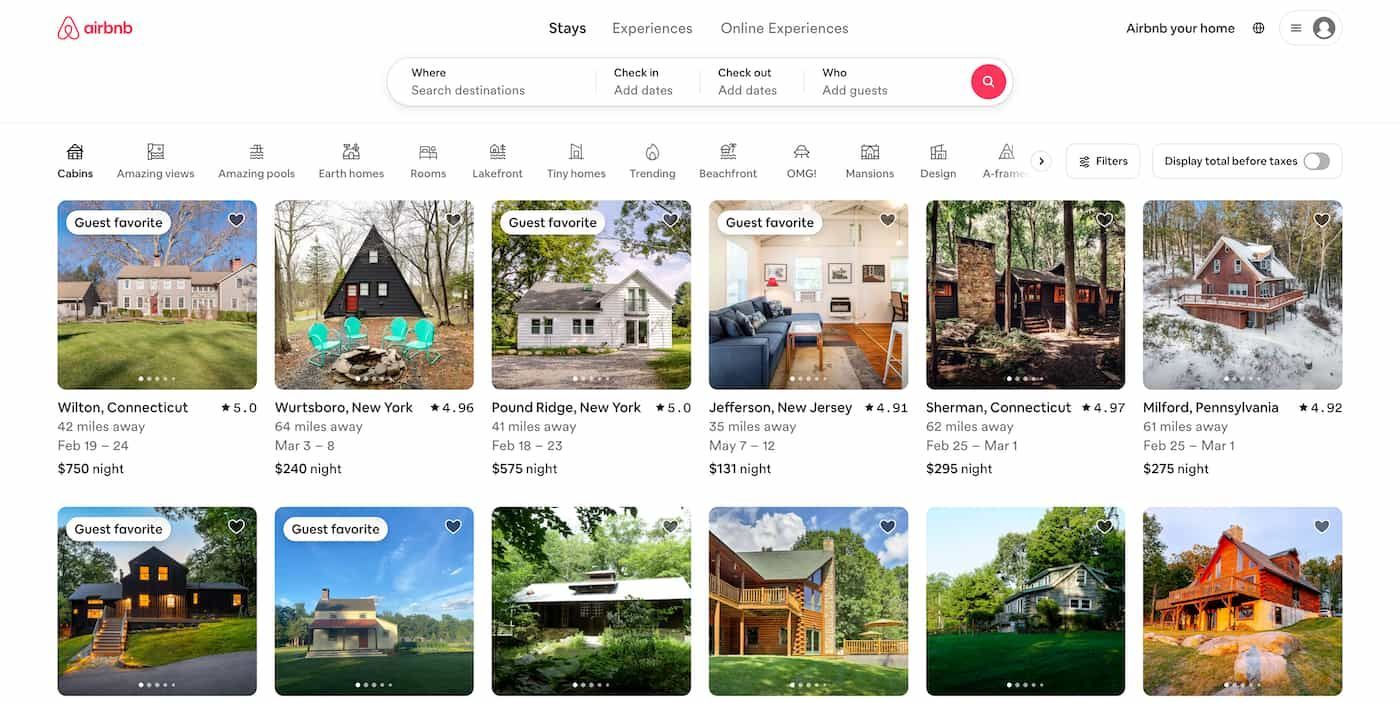
Airbnb was launched in 2008 by Brian Chesky, Joe Gebbia, and Nathan Blecharczyk, transforming the hospitality industry by enabling individuals to rent out their properties.
Its unique selling proposition is that it specializes in short-term rentals, directly competing with hotels bed and breakfast establishments on price and convenience.
Regardless of whether you have a house, apartment, or spare room to offer, travelers place bookings after perusing the app on their cellphones or laptops.
The aim is to provide alternative accommodation options while empowering homeowners to earn money from their living spaces through a dedicated marketing platform.
Hosts and guests can provide feedback on their experiences with the platform’s users, allowing for greater control over how a person does business in the gig economy.
After an initial period of adoption, Airbnb encountered a variety of challenges related to local regulations, including housing laws, taxation, and community disturbances.
With hosts cashing in on additional income streams and a vast pool of travelers, there is a high likelihood of consistent bookings and income for hosts.
Guests benefit from a variety of accommodation possibilities that cater to a wide range of preferences, further increasing Airbnb’s potential.
One of the more important gig economy pros and cons is guest feedback, as it can help or hinder a host’s reputation.
1. Uber
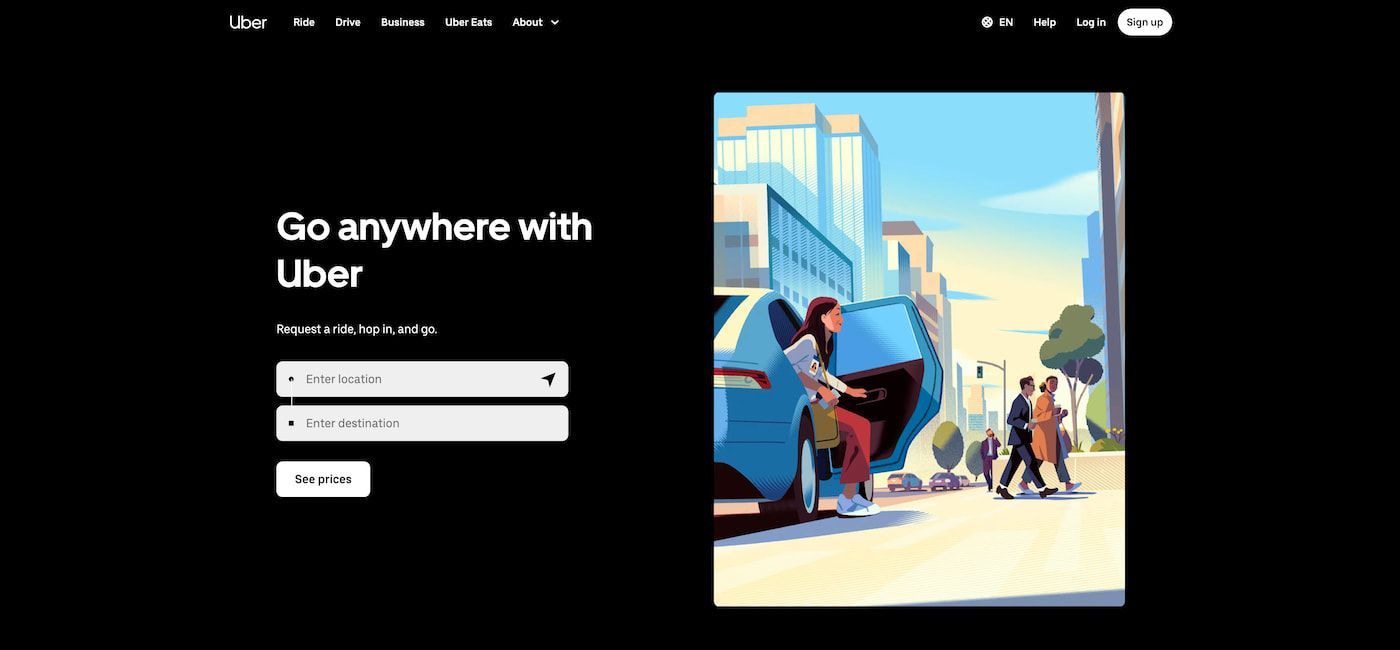
This top gig economy company was founded in 2009 by Travis Kalanick and Garrett Camp and revolutionized the ride-hailing industry.
The app allows anyone to become an independent driver if they have access to a suitable vehicle and the required license.
Using their own vehicles, drivers provide convenient, on-demand transportation services while enjoying flexible employment by working whenever they choose.
The platform connects riders with drivers through a mobile app, allowing users to request rides and pay prices considerably lower than standard taxis.
Uber faced numerous challenges over driver wages, safety concerns, and regulatory issues worldwide, resulting in changes in how the company does business.
As one of the top gig economy companies, Uber has managed to roll out its services globally, disrupting traditional taxi services in almost every country.
With Uber operating in many parts of the world, the company provides massive opportunities for drivers to earn significant incomes.
Drivers are free to work when they prefer, allowing for flexible part-time or full-time employment and an excellent work-life balance.
Constant improvements to the app and service create opportunities for drivers to adapt to new features and earn more money.
Uber, the biggest gig economy company, offers improved support systems, including assistance centers and online resources, aiding gig workers and providing greater safety.
With new services like Uber Eats and Uber Freight appearing on the app, drivers have additional options beyond ride-hailing to diversify their income streams.
Summary
Each of these gig economy companies is benefiting from the rise of the digital provision of services to a more connected and technologically driven population.
Independent workers, who prefer freelance marketplaces and the ability to select specific job postings, are fast becoming the norm worldwide.
Companies that provide the means to offer personal shoppers, drivers, and other temporary workers are making a killing in the gig economy.
Freelance work offers individuals a better work-life balance, while small businesses can take advantage of this trend without high employee costs.
Adrian Mole is a UK-based Chartered Accountant and Chartered Tax Adviser. With a career spanning over 30 years, he has advised clients of all sizes on accounting, business, and tax matters and has a passion for helping startups. Formerly a partner of a Top Ten accounting firm in London, he now runs a small accounting practice closer to home with a committed team of finance professionals. A private pilot and keen scuba diver, when not working, he enjoys time with his family and teaching Ballroom dancing.
– Recommended Reads –
The information found on this website is for general purposes only and should not be considered financial advice. The Positive Accountant is an opinion and information based website only. Please do your own research and consult with a qualified professional before making any financial decisions.




